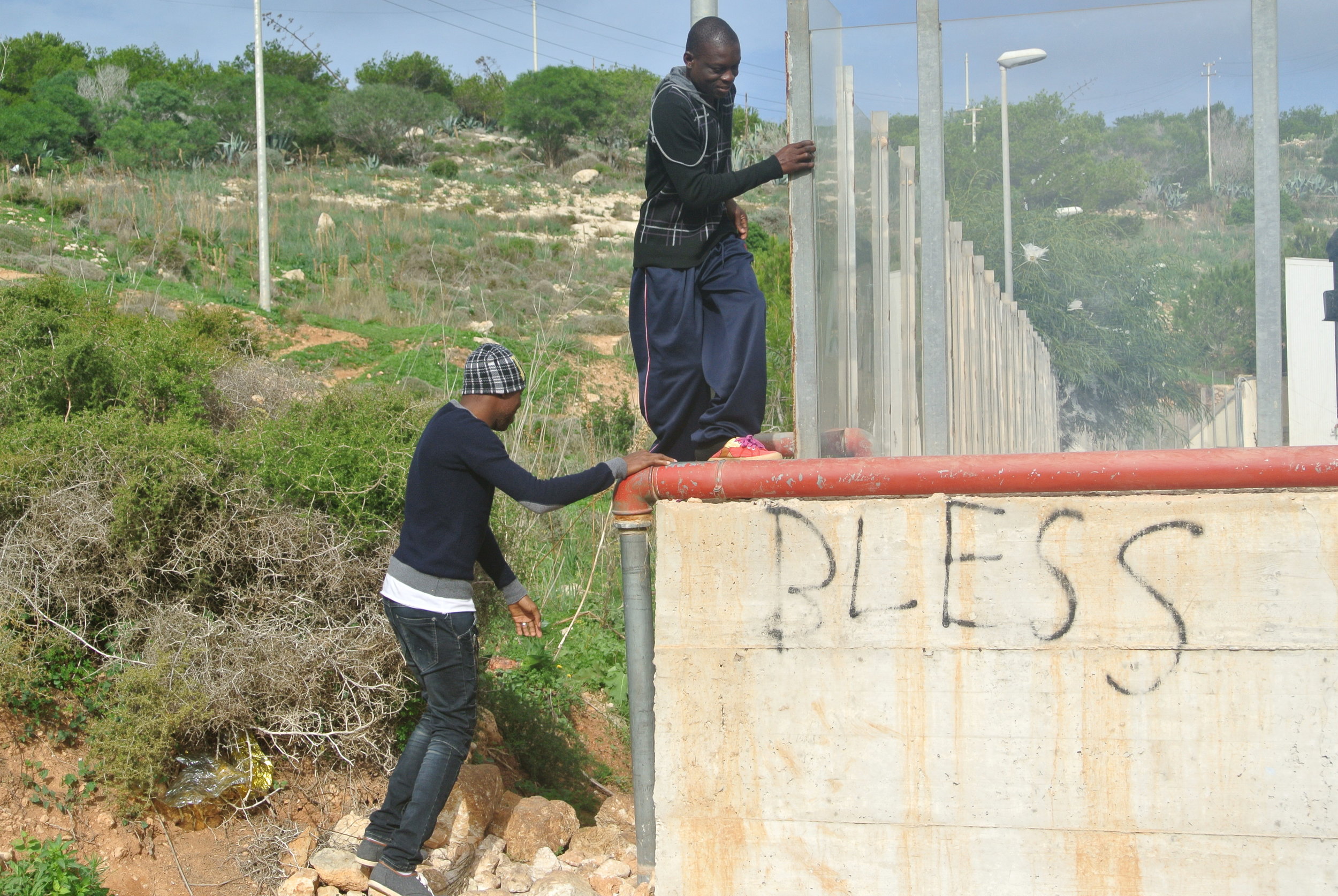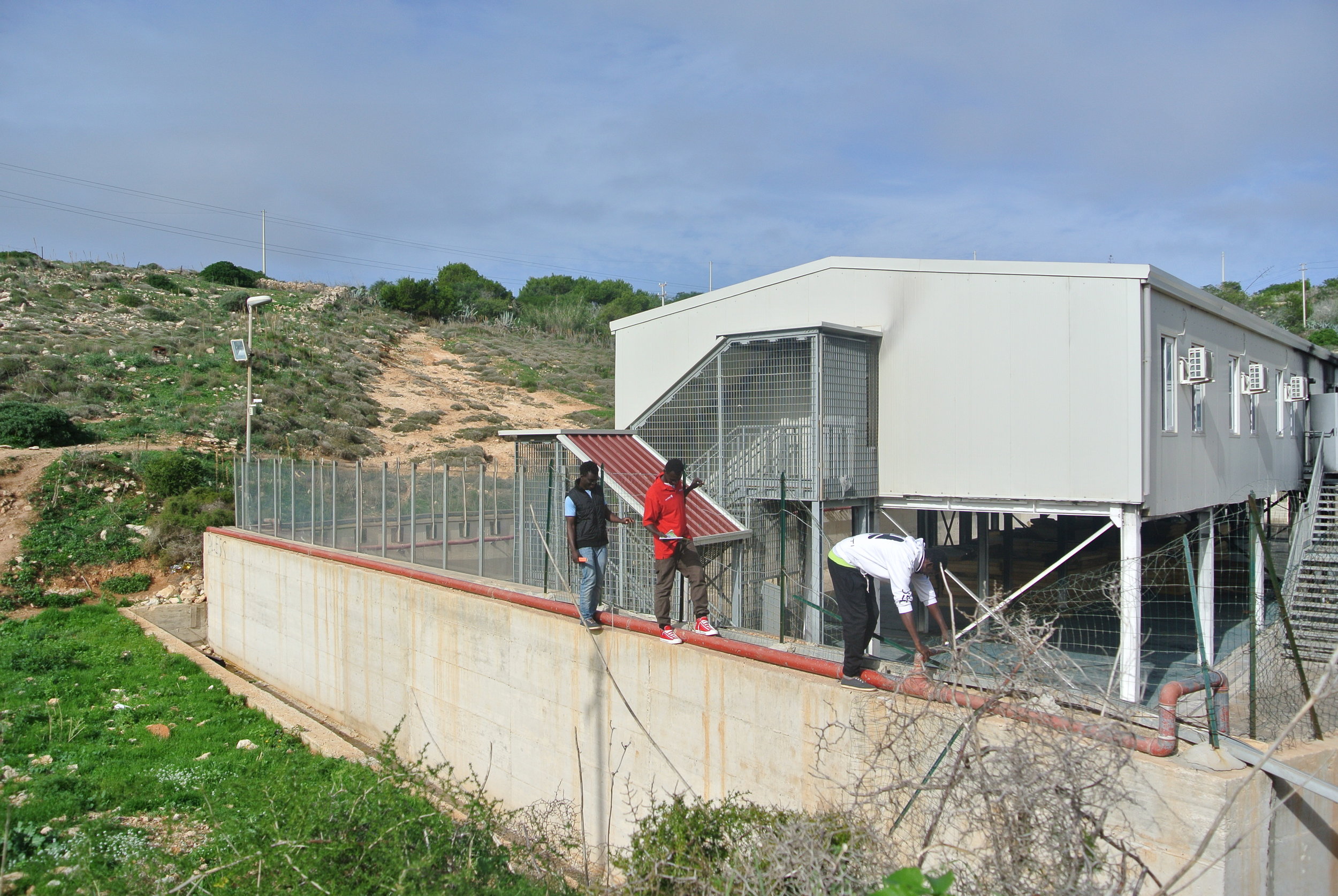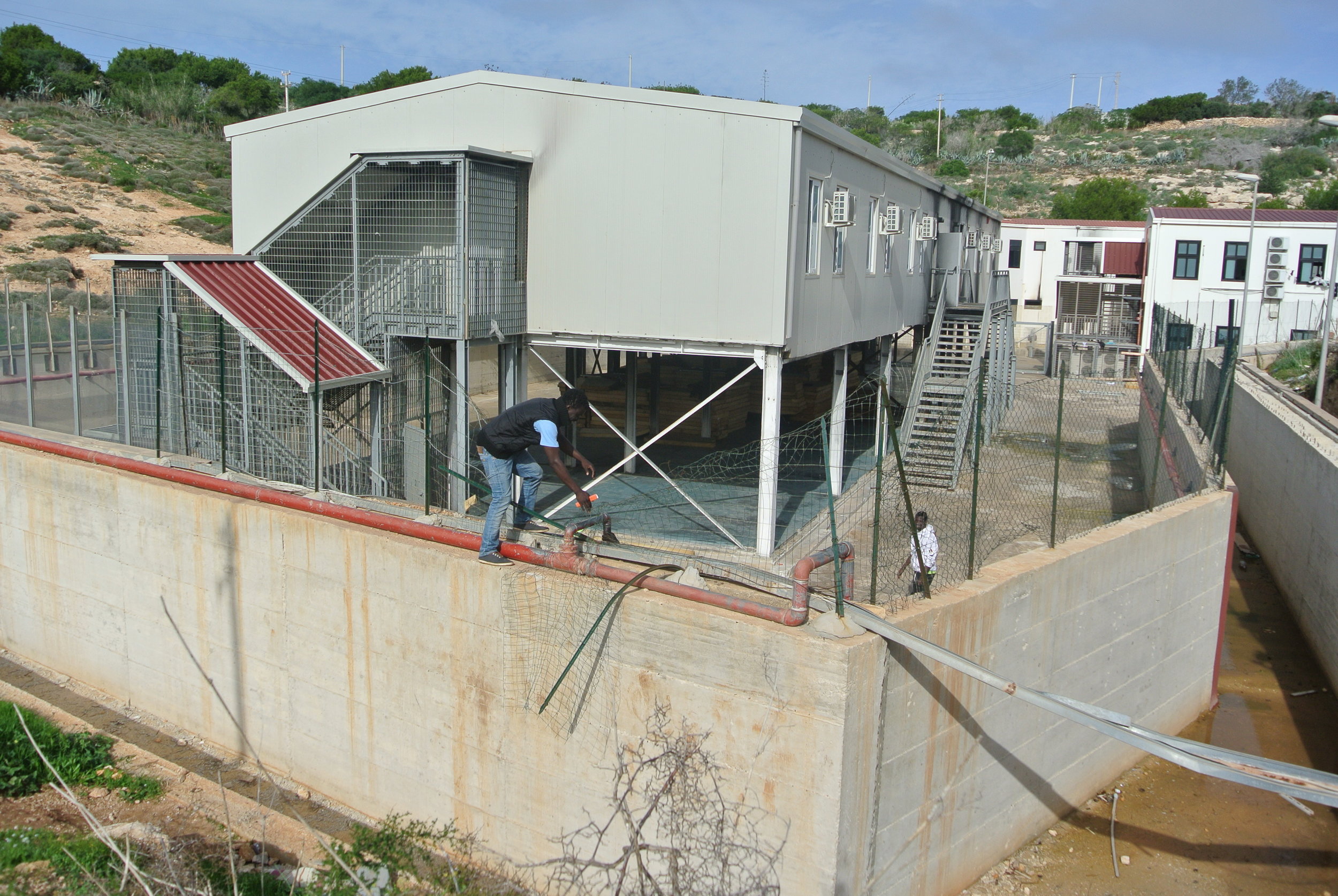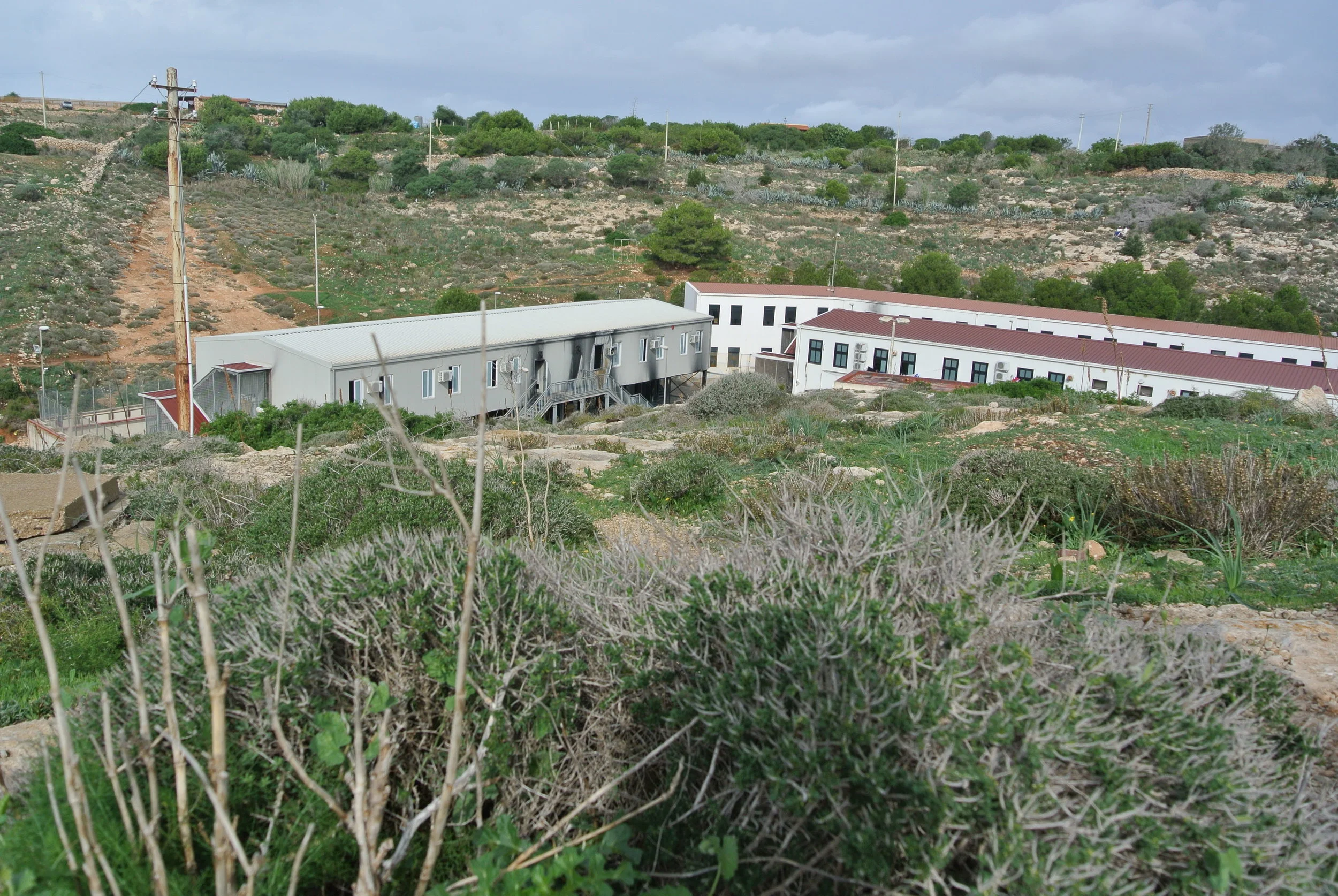MotM Op-Ed | Call It By Its Name
Il cimitero delle barche (the boat graveyard) in 2016. Lampedusa, Italy; November 2016. © Pamela Kerpius
8 July 2018
MotM Op-Ed
Call It By Its Name
When we talk about migration in Europe there is a problem of not calling it by its name: a humanitarian emergency.
As long as we avoid calling the migration flow exactly what it is our integrity to address its reason for being, the mechanics of the trafficking that allow it, and the human repercussions of those who have suffered its course remains compromised.
This response comes on the occasion of the New York Times report “Migration to Europe Is Down Sharply. So Is It Still a Crisis?,” published June 27, 2018, which even through its own exasperation with the moniker “political crisis” in the end in fact supports it.
It is no surprise to see migration spoken about in terms besides the political. But it is a surprise to see a report grow frustrated with it and then accept its premise. The report refutes the “political” label, but only because it claims it’s not true to the current European political environment, not because it is altogether a misnomer.
Yet what takes the report to startlingly egregious lengths is its imprecise geographical understanding of Lampedusa, and its unquestioned conclusions about island politics and Italian policy more broadly that have played a role in the migration flow.
In my regular time spent on Lampedusa island never would such a carefree phrase like “visitors…could only hear the sound of birdsong” be uttered in earshot of the migrant reception center––better known as the “hotspot” and better resembling a prison––making we wonder if its reporter had been there at all.
Sufficient investigation of this pocket of the island would reveal it is a place where migrants have suffered and where some have even died. The squalid conditions inside have been well documented. The means by which migrants have come and gone from it, undignified.





The purpose of embellished writing like the above, it seems, is to comfort its assumptions that there is now no longer any strife to be concerned about. You can relax––nothing to see here, folks.
It’s a rather casual tone to take just because flows have stopped or slowed to the island and to areas surrounding it since peak levels in 2015, neglecting entirely the incriminating reasons why.
Should the language shift from the political sensationalism we know to the humanist vernacular it requires, these questions automatically come to the surface. “It’s the quietest it’s been [at the hotspot] since 2011,” Lampedusa’s mayor Salvatore Martello is quoted.
If we agreed to speak about migration in Europe in humanist terms, the Times might have asked Martello why there was a slow-down; concern about the alternative fate of the people who are not there would have read as a glaring omission then.
Revealing the political maneuverings that have affected the slow-down in arrivals (including Martello’s own; and what his personal business interests are as a prominent hotel owner on the island, whose tourist economy is affected by the perceived migrant “threat”) would also reveal the fact that the very people who might have arrived in Lampedusa are not there because Italy has paid a puppet coast guard to patrol Libyan waters and intercept and return migrants to Libya, where they are returned to detention.
Arrivals do not occur on Lampedusa island now because they are held in slavery, arbitrarily detained, held for ransom, beaten, administered electric shock, amidst other ghastly human rights abuses in Libya. Italy knows this. The European Union knows this.
That is the price of their birdsong.
So the report falls in line with language of the status quo that no longer serves us. It falls in line with language that besides not being reflective of the human truth of the migration phenomenon, deters us from addressing its reality in measurable ways that might strengthen society in the future.
This is prevailing language that inhibits us from changing the way we see. For the purposes of this particular report, it actually obscures what we see.
The side-by-side photographs that have been cited as Lampedusa, compare it from dates May 2017 to 2018. But these are of a migrant-packed fishing boat on the sea and a shot of abandoned boats on land, two disparate locales that do not illustrate a one-to-one measure of change.
According to a Guardian report last year the 2017 photo was taken during a rescue by the Migrant Offshore Aid Station (MOAS) vessel (corroborated also by the photo’s Getty Image archive page) 20 nautical miles off the coast of Libya. For perspective, about 160 nautical miles separate Libya’s capital city on the coast, Tripoli, and Lampedusa. This boat was nowhere near Lampedusa island.
The 2018 photo of the Lampedusa boat graveyard on land is, by contrast, on a dramatically remote point on a cliff of the island’s western edge that you would call uninhabited were it not for the inaccessible military base fenced off behind it.
The Boat Graveyard, in contrast with the same location at right. Lampedusa, Italy; November 2016. © Pamela Kerpius
Many of those boats, in fact, have been abandoned there for years, at least since the fall of 2016 when I made my first visit to it, and likely long before it: by then, the majority of migrants were traveling on inexpensive and unseaworthy rubber rafts from Libya, not wooden fishing vessels as shown in the photograph.
These two photos have ostensibly no geographical relation to one another.
So there remains a problem of seeing things as they are. And the further we tie ourselves to the current political parlance, the human suffering and succeeding integration complexities will not be alleviated.
It is “an ideological war,” Martello is quoted again at the end. “Europe is divided into two main blocs: One is defending the borders, and the other is actually doing something about the situation.”
But ask him. Ask Martello what he is doing about it, and you will see that his is actually the same border defense tactic with a geographical difference: Hungary closes its borders onsite, Italy just pushes theirs beyond its own shore––to Libya, where all are left behind, out of sight, suffering violence and indignity that Italy and the EU has deigned too sensitive for its privileged eyes to see.
Which isn’t even to say the most obvious of all: migrants are among us anyway. It is our job to help them.
This is a humanitarian crisis and it is not over.



